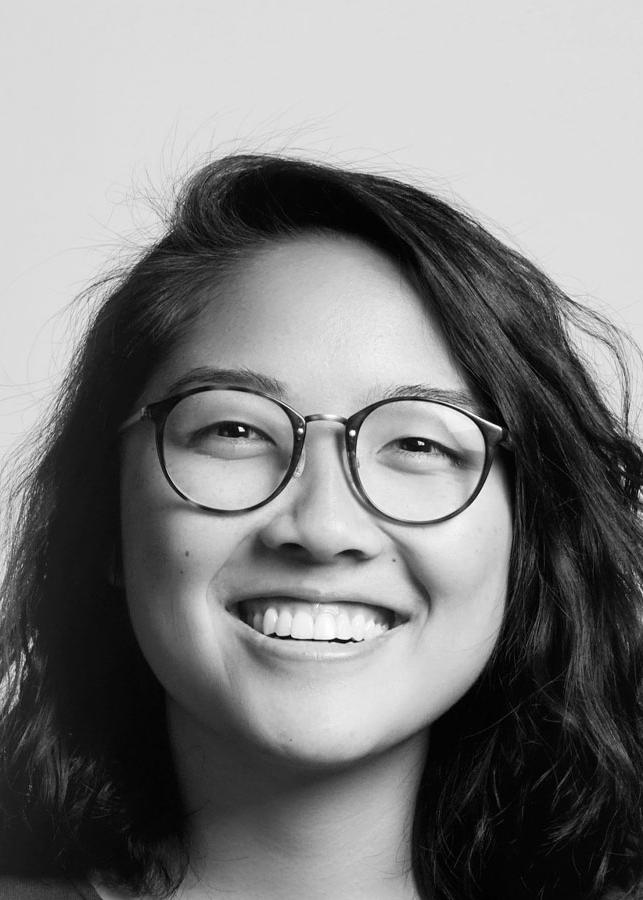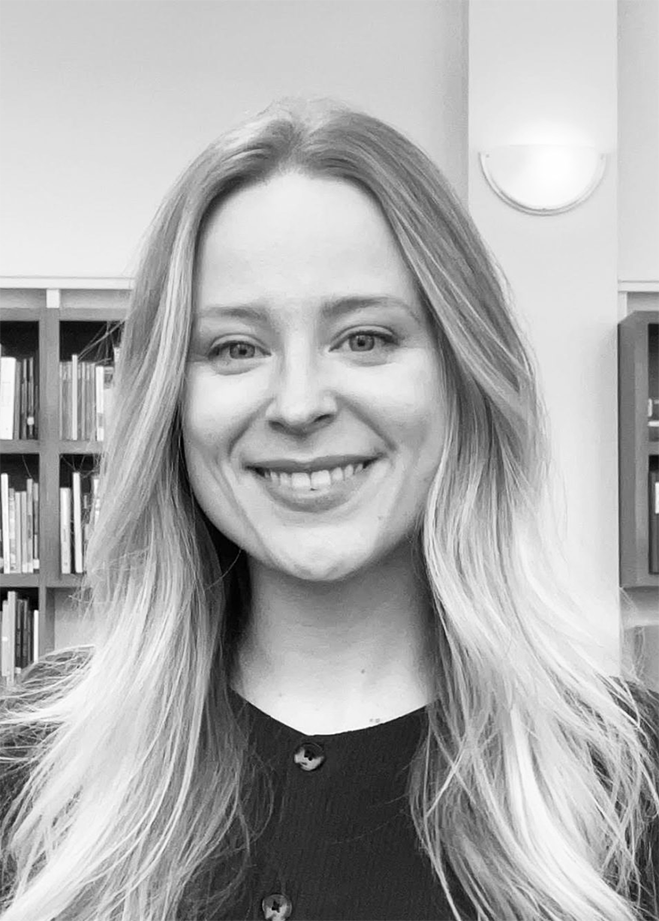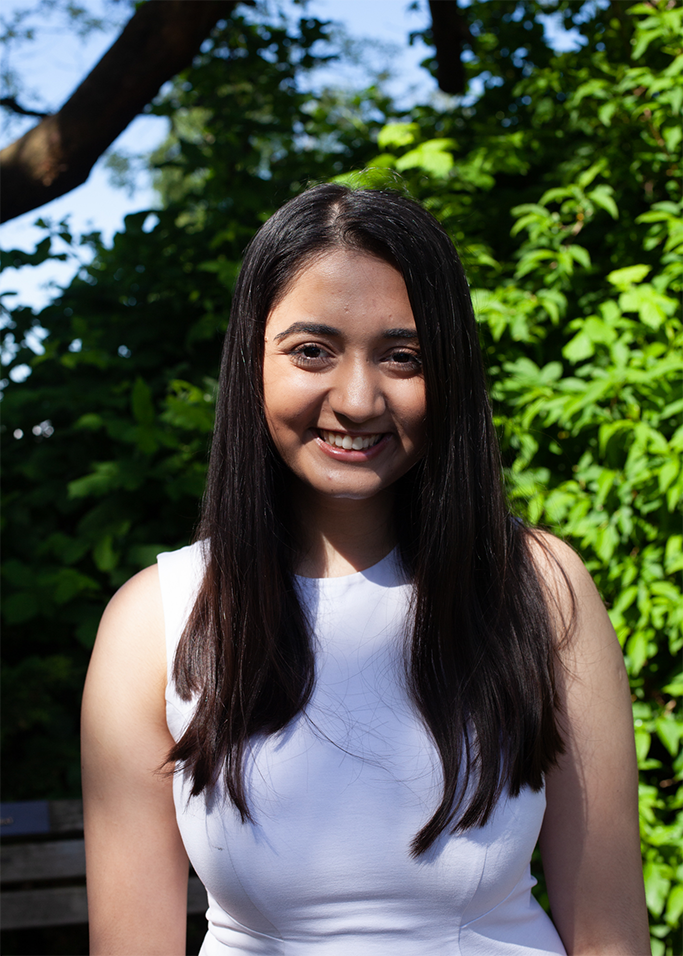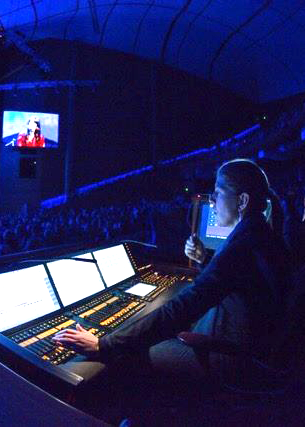Siena Wood Hutton
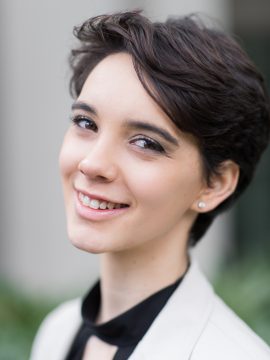
Why did you choose your program at UBC and what did you enjoy most about it?
I actually began my path at UBC in Electrical Engineering. After a year and a half, I realized that this was not the right avenue for me, and looked to switch into Arts. I had not yet decided what specifically I would like to do, so I did a term of general arts, and happened to like my Classical Studies class the most. I enjoyed the array of studies and opportunities available in the program, from classes on every aspect of Greek and Roman society, to the many field schools.
What were some of your most meaningful experiences at UBC?
My most meaningful experiences at UBC were absolutely the field schools that I attended during my undergrad. I attended several led by UBC professors, but also several from other universities, and these greatly helped prepare me for finding work after graduation.
What choices did you make at UBC that contributed to your career success / journey?
I trace my career path down to one decision. After my first year in Classical Studies, I chose to go to a field school in Sicily. At the time, I was only planning to do it because I thought it would look good on grad school applications, as I was planning at the time to continue on to become a professor. That excavation was a major turning point for me though. Not only did I love my experience there, and fall in love with being in the field, but I also uncovered my first mosaic. When the director asked me to illustrate the mosaic, it sparked my passion that has since become a three-fold career path: archaeology, archaeological illustration, archaeological conservation. I cannot even imagine what path I would be on had I not attended that excavation, and I am forever grateful that I did!
What was your first job after graduation and what other jobs did you have before your current position?
After graduation, I chose to take a gap year. I moved to Italy with the aim of staying there forever, in part because it is where the material I study is located, and in part because of my love for the country. During the year I worked a wide variety of jobs. I had an internship with an archaeological tours company, Context Travel, and was subsequently offered a job working in their client services. I also worked as an archaeological illustrator for an excavation that I had interned for during my undergrad, as well as several other unrelated jobs to pay the bills.
Is your current career path as you originally intended? What challenges did you face in launching your career?
Absolutely not! Though I would have to say, I don’t think you can really have an “intended career path” in archaeology, at least not from my experience. So much of this field is based on what offers you happen to receive on a season-to-season basis, and heavily based on networking connections. It is a constant search for what is offered, and staying in touch with every person that you have ever worked with on the chance that they know of a job that fits what you do.



Siena Wood Hutton (centre) restoring a mosaic in Stobi, Macedonia. Photos courtesy of National Institution Stobi (Krassy Frangova).
What do you like about your current job and what do you find challenging? How does it relate to your degree?
Currently, I am working for the National Institute Stobi, in Macedonia, for two months as an assistant mosaic conservator. Earlier this year, I attended a mosaic conservation workshop here in Macedonia and was lucky enough to get offered this position upon completion of the workshop. I am absolutely loving the work that we are doing, and I eagerly look forward to a career in this field. Next year, I will be attending a one-year study in conservation at Saint Peter’s Basilica in the Vatican, followed by a five year Master’s program near Rome in archaeological conservation of marble, stone, fresco, and mosaic. I hope to continue working in Stobi during these years, as well as on new excavations in Italy and abroad.
From your experience, what has been the value of having an Arts degree?
My UBC Arts degree has been fundamental to my opportunities. During my time at UBC I was able to explore many different facets of Classical Studies and Classical Archaeology and figure out where exactly I saw my place in this broad field. Since graduation, I have been able to call upon the connections that I made during my time at UBC, allowing me to pursue the work I love.
What advice would you give to students and alumni interested in breaking into your industry?
Never stop networking! Archaeology is all about building connections. There are countless people that are trained in the various parts of this field, so the more people that know you and your work, the more chances that you will have to receive jobs. On a related note, pick an area of specialization, but also stay trained in the broader field. I am specializing in mosaic conservation, but by also having training and experience in other forms of conservation, as well as archaeological illustration and field work, I am able to apply to a wider range of opportunities.
What advice would you give to your first-year self?
Don’t go into Engineering?!
But no, in all honesty, as much as I wish I could go back in time and go straight into archaeological conservation to save myself extra years of study, I wouldn’t actually want to change anything in the path that I have taken. Without the extra years of exploration, I would not have been able to understand exactly what I wanted to do with my life, and the journey that I took at UBC, as well as since graduation, has been not only important to my career, but also a great deal of fun!
Siena Wood Hutton



Why did you choose your program at UBC and what did you enjoy most about it?
I actually began my path at UBC in Electrical Engineering. After a year and a half, I realized that this was not the right avenue for me, and looked to switch into Arts. I had not yet decided what specifically I would like to do, so I did a term of general arts, and happened to like my Classical Studies class the most. I enjoyed the array of studies and opportunities available in the program, from classes on every aspect of Greek and Roman society, to the many field schools.
What were some of your most meaningful experiences at UBC?
My most meaningful experiences at UBC were absolutely the field schools that I attended during my undergrad. I attended several led by UBC professors, but also several from other universities, and these greatly helped prepare me for finding work after graduation.
What choices did you make at UBC that contributed to your career success / journey?
I trace my career path down to one decision. After my first year in Classical Studies, I chose to go to a field school in Sicily. At the time, I was only planning to do it because I thought it would look good on grad school applications, as I was planning at the time to continue on to become a professor. That excavation was a major turning point for me though. Not only did I love my experience there, and fall in love with being in the field, but I also uncovered my first mosaic. When the director asked me to illustrate the mosaic, it sparked my passion that has since become a three-fold career path: archaeology, archaeological illustration, archaeological conservation. I cannot even imagine what path I would be on had I not attended that excavation, and I am forever grateful that I did!
What was your first job after graduation and what other jobs did you have before your current position?
After graduation, I chose to take a gap year. I moved to Italy with the aim of staying there forever, in part because it is where the material I study is located, and in part because of my love for the country. During the year I worked a wide variety of jobs. I had an internship with an archaeological tours company, Context Travel, and was subsequently offered a job working in their client services. I also worked as an archaeological illustrator for an excavation that I had interned for during my undergrad, as well as several other unrelated jobs to pay the bills.
Is your current career path as you originally intended? What challenges did you face in launching your career?
Absolutely not! Though I would have to say, I don’t think you can really have an “intended career path” in archaeology, at least not from my experience. So much of this field is based on what offers you happen to receive on a season-to-season basis, and heavily based on networking connections. It is a constant search for what is offered, and staying in touch with every person that you have ever worked with on the chance that they know of a job that fits what you do.



Siena Wood Hutton (centre) restoring a mosaic in Stobi, Macedonia. Photos courtesy of National Institution Stobi (Krassy Frangova).
What do you like about your current job and what do you find challenging? How does it relate to your degree?
Currently, I am working for the National Institute Stobi, in Macedonia, for two months as an assistant mosaic conservator. Earlier this year, I attended a mosaic conservation workshop here in Macedonia and was lucky enough to get offered this position upon completion of the workshop. I am absolutely loving the work that we are doing, and I eagerly look forward to a career in this field. Next year, I will be attending a one-year study in conservation at Saint Peter’s Basilica in the Vatican, followed by a five year Master’s program near Rome in archaeological conservation of marble, stone, fresco, and mosaic. I hope to continue working in Stobi during these years, as well as on new excavations in Italy and abroad.
From your experience, what has been the value of having an Arts degree?
My UBC Arts degree has been fundamental to my opportunities. During my time at UBC I was able to explore many different facets of Classical Studies and Classical Archaeology and figure out where exactly I saw my place in this broad field. Since graduation, I have been able to call upon the connections that I made during my time at UBC, allowing me to pursue the work I love.
What advice would you give to students and alumni interested in breaking into your industry?
Never stop networking! Archaeology is all about building connections. There are countless people that are trained in the various parts of this field, so the more people that know you and your work, the more chances that you will have to receive jobs. On a related note, pick an area of specialization, but also stay trained in the broader field. I am specializing in mosaic conservation, but by also having training and experience in other forms of conservation, as well as archaeological illustration and field work, I am able to apply to a wider range of opportunities.
What advice would you give to your first-year self?
Don’t go into Engineering?!
But no, in all honesty, as much as I wish I could go back in time and go straight into archaeological conservation to save myself extra years of study, I wouldn’t actually want to change anything in the path that I have taken. Without the extra years of exploration, I would not have been able to understand exactly what I wanted to do with my life, and the journey that I took at UBC, as well as since graduation, has been not only important to my career, but also a great deal of fun!
